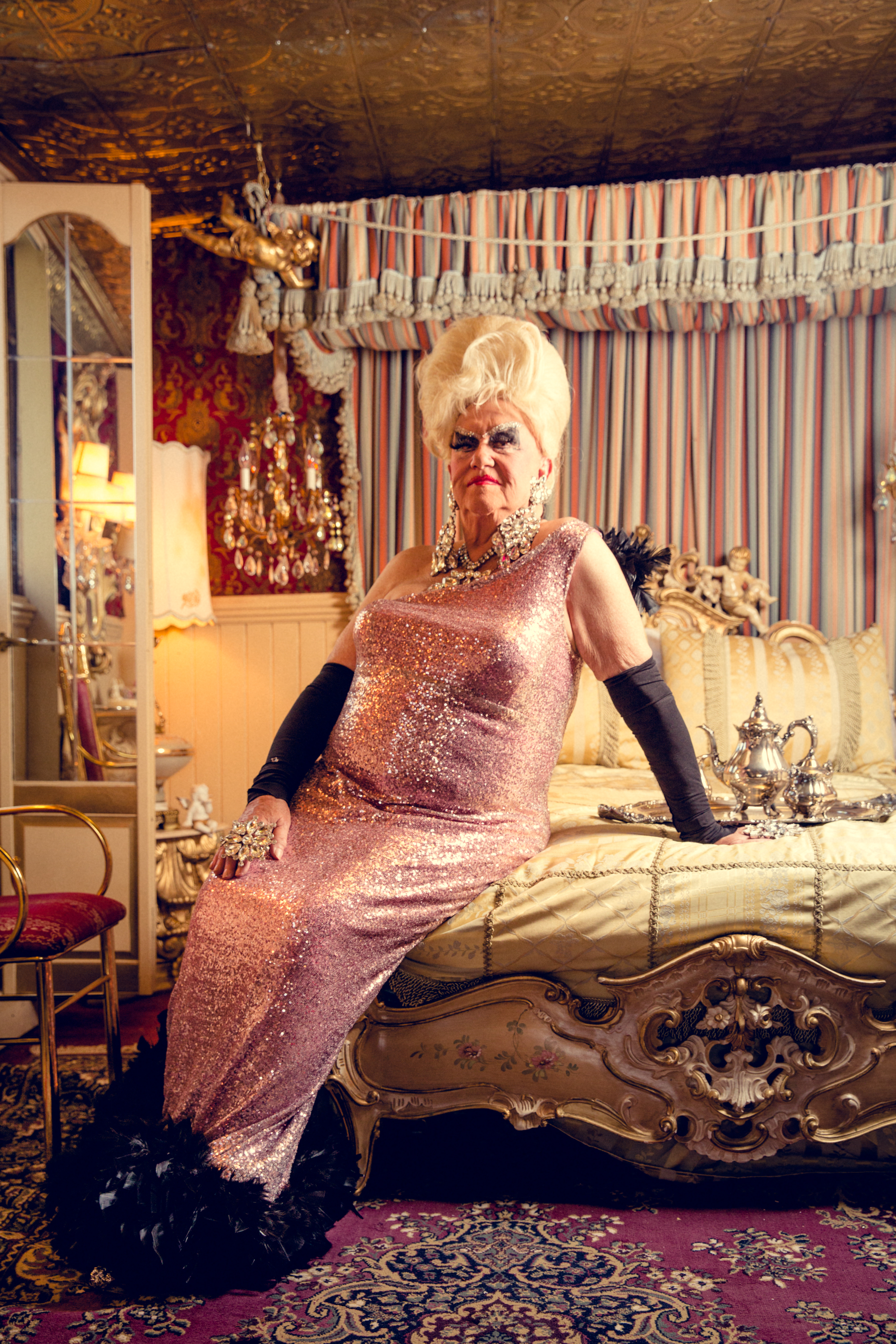
(Photo: Holly Andres)
Four nights a week, Walter Cole leaves his home in northeast Portland, Oregon, and drives over the bridge to the somewhat derelict section of downtown known as Old Town. At 87 years old, he’s a bit slower than he used to be as he walks to the bar he owns. Inside he waves to his son, Walter Jr., who manages the bar, and makes his way backstage. He seats himself at a dressing table and begins to put on the Dollar Store-purchased theatrical make-up, false eyelashes, and handmade costumes that help transform Cole into Darcelle, the bawdy, 5-foot-11 showgirl he’s played for 50 years. Cole holds the Guinness World Record as the World’s Oldest Performing Drag Queen, and has no plans to retire. “It keeps me young,” he explains.
Darcelle XV, the club that bears Cole’s stage name, is considered to be the oldest drag revue in the country. Nowadays, Darcelle’s is a popular destination for bachelorette parties and tourists, but back in the early 1970s, it served as a safe space for Portland’s then-underground gay and lesbian community. It was a place where people could come and dance and be themselves without fear of persecution—which is what Cole wanted for himself too.
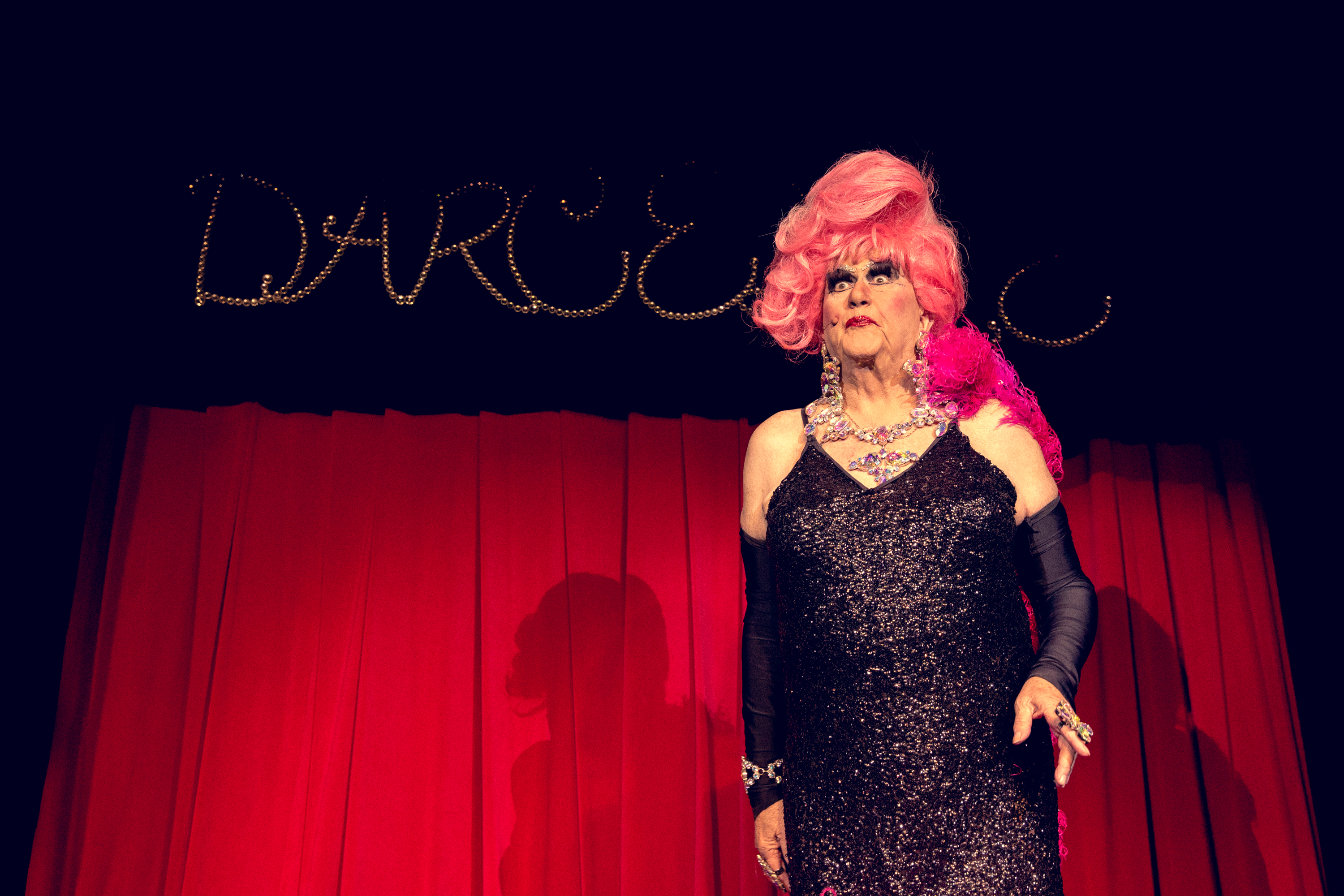
Cole’s transformation into Darcelle began when he bought the Demas Tavern in 1967. He was a born-and-bred Portlander who had returned to his hometown after a stint in the military, with a wife and two kids to support. He opened a coffeehouse and an ice cream parlor and was looking for a new venture; the tavern seemed like a good investment. As he worked on the bar, Cole realized he needed to make some other changes in his life, too, finally admitting to his wife that he was gay. He and his wife are still married, but Cole has now been with his (male) partner, Roxy Neuhardt, for 47 years. “We’re one big happy family,” says Cole, whose first great-grandchild is on the way.
The drag show began as a way to entertain customers at Cole’s new bar. “My partner, Roxy, had worked in Vegas,” Cole says. “We had seen a few shows during our travels and decided that maybe we could try it.” Cole cribbed the name of his new alter ego from a Hollywood starlet named Denise Darcel, and patterned his look on Gracie Hansen, a Portland legend who danced at the Hoyt Hotel and once ran for governor of Oregon. “She was always: ‘More furs! More feathers! More rhinestones!'” he says.
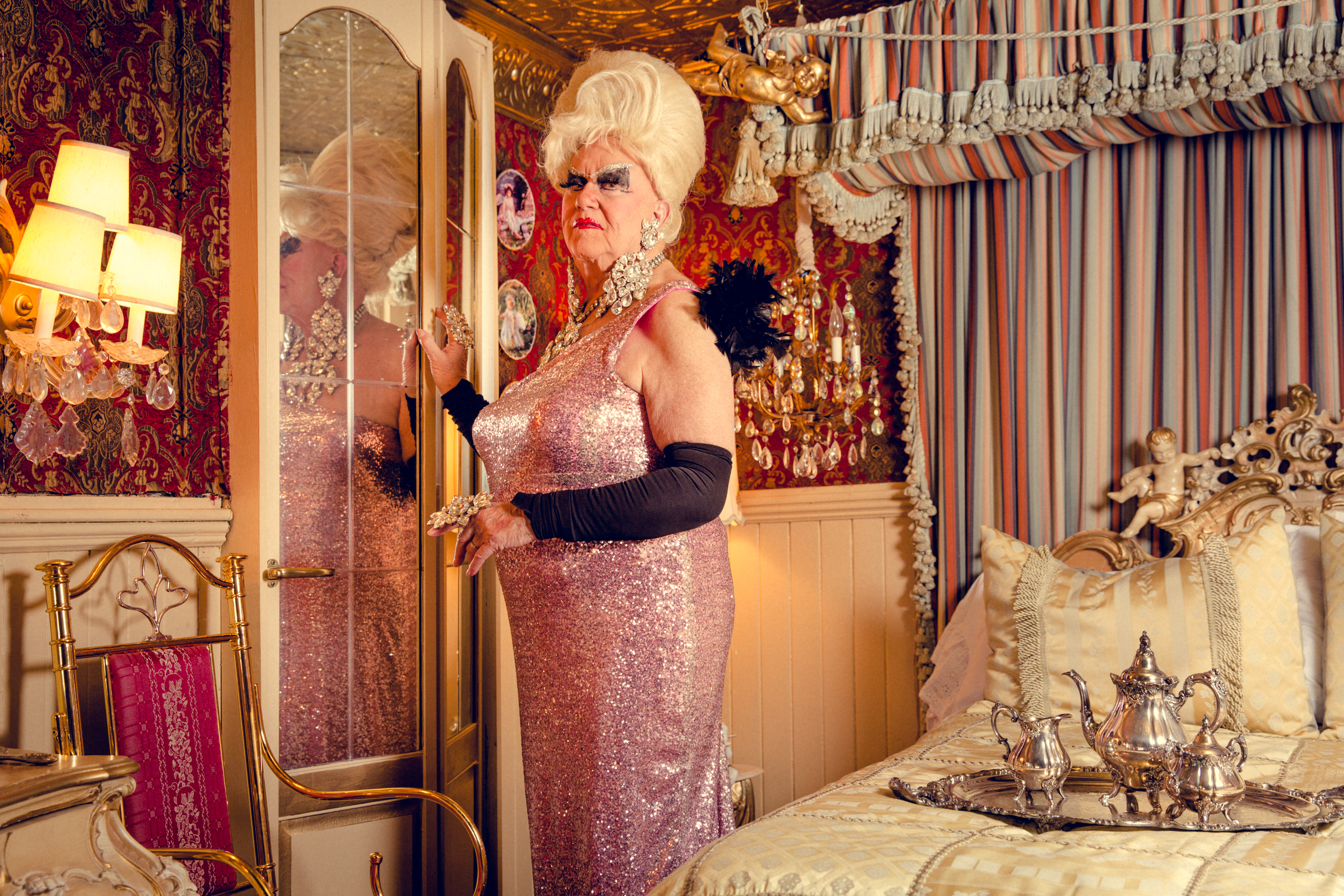
At the time, before Oregon repealed its broad “sodomy” ban in 1971, any activity suggesting someone might be gay could draw scrutiny from law enforcement. Darcelle’s was once fined for having Neuhardt dance with a male partner onstage, though the fine eventually got dropped.
While Cole says gay rights were becoming a topic of conversation in the 1970s, the drag show still operated under the radar. That was a safety precaution, because, while Portland was more tolerant than some communities, gay people often felt unprotected, or even targeted, by the police. Darcelle’s thus became a de facto community center for lesbians and gay men: Gathered around Darcelle’s bar, Portland’s gay community and its allies organized to fight for gay rights in the ’70s, mourned the loss of friends to AIDS in the ’80s, and fundraised to fight an anti-gay ballot measure that was voted on in Oregon in the ’90s. (It was eventually voted down.)
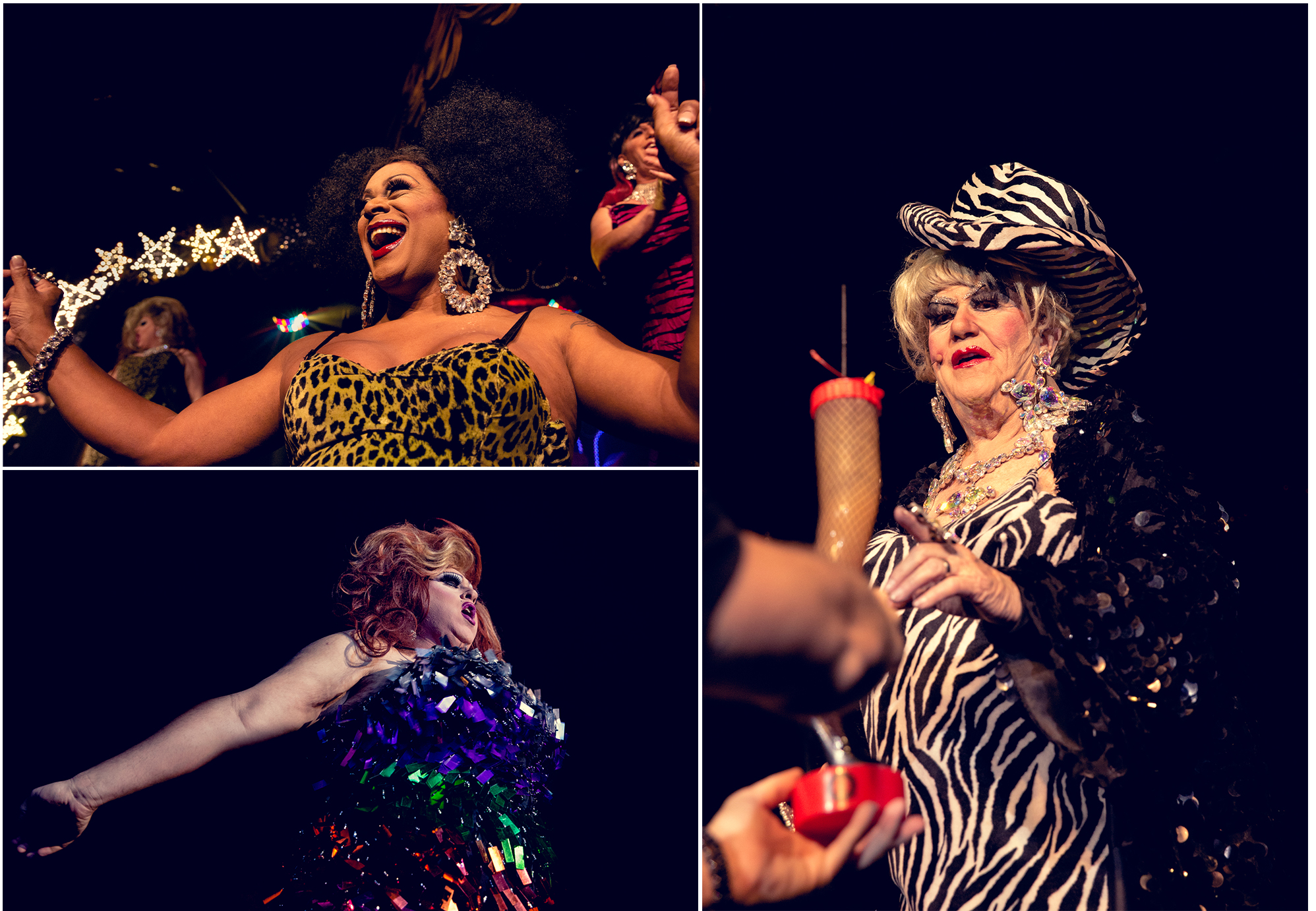
Over the years, Darcelle herself went from a gay icon to a Portland legend, even serving as Grand Marshal for the city’s annual Starlight Parade in 2011. “Darcelle is just a huge part of the community in Portland, gay or straight,” says Dean Mathiesen, who started going to Darcelle’s in the early 1980s. Back in the ’80s, when he and his friends wanted to start a dance party for gay teenagers, they went to Cole for help, because that was the role Cole served in the gay community—he always helped. “When I think of someone in my past who was a mentor for gays, it was Darcelle,” Mathiesen says.
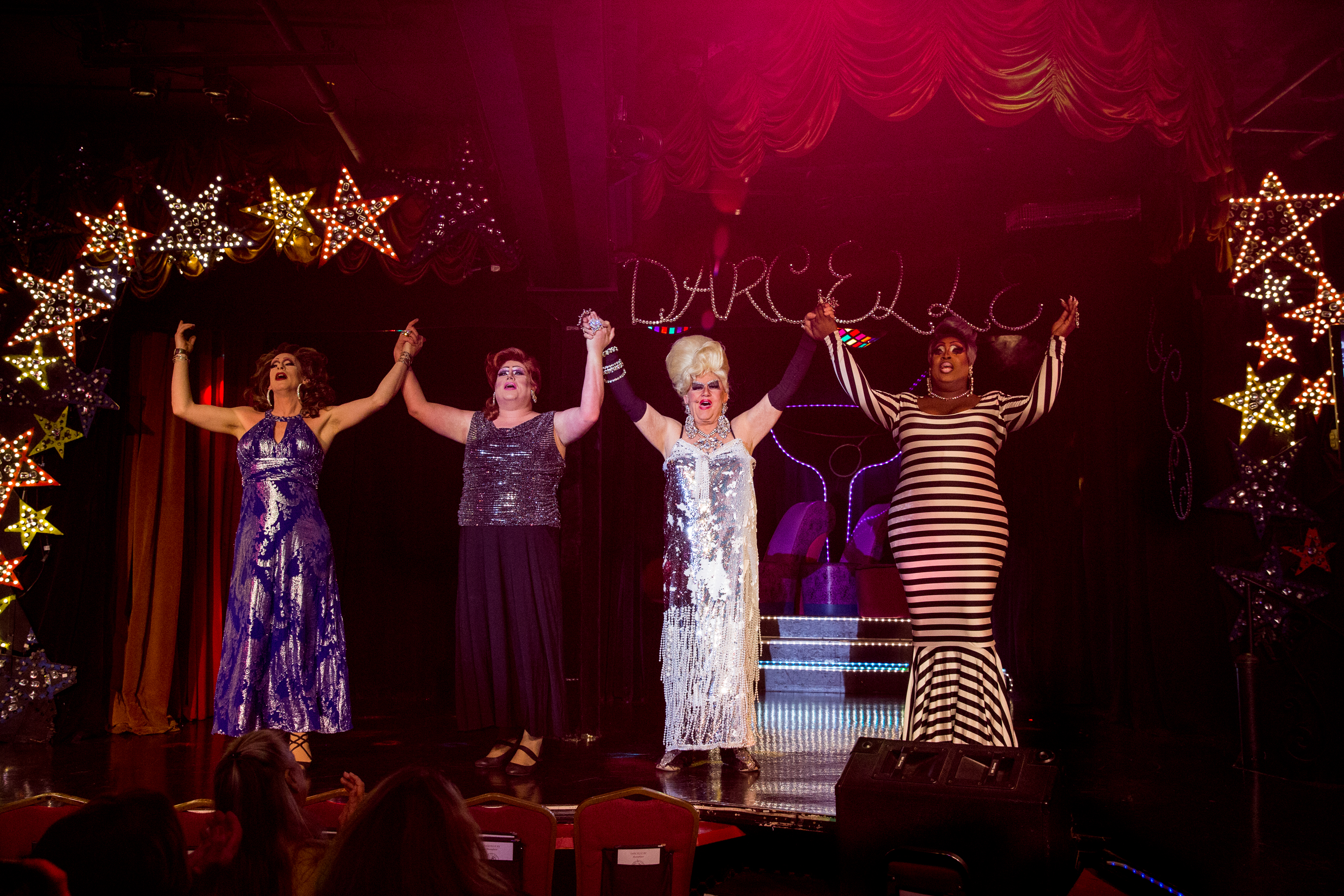
(Photo: Holly Andres)
As he has gotten older, Cole has swapped heels for sequined flats, but still takes the stage four nights a week, and twice on the weekends, to emcee for the troupe of drag queens who perform song-and-dance numbers for bachelorettes and birthday parties. Between sets, Darcelle, decked out in satin or sequins, will joke with the crowd or deliver an earnest version of Bette Midler’s “The Rose.” It took Cole a while to find this happy life, but now that he has, he wants it to go on forever. He pauses a minute before adding: “Well, forever is a long time.”
A version of this story originally appeared in the December/January 2018 issue of Pacific Standard.





